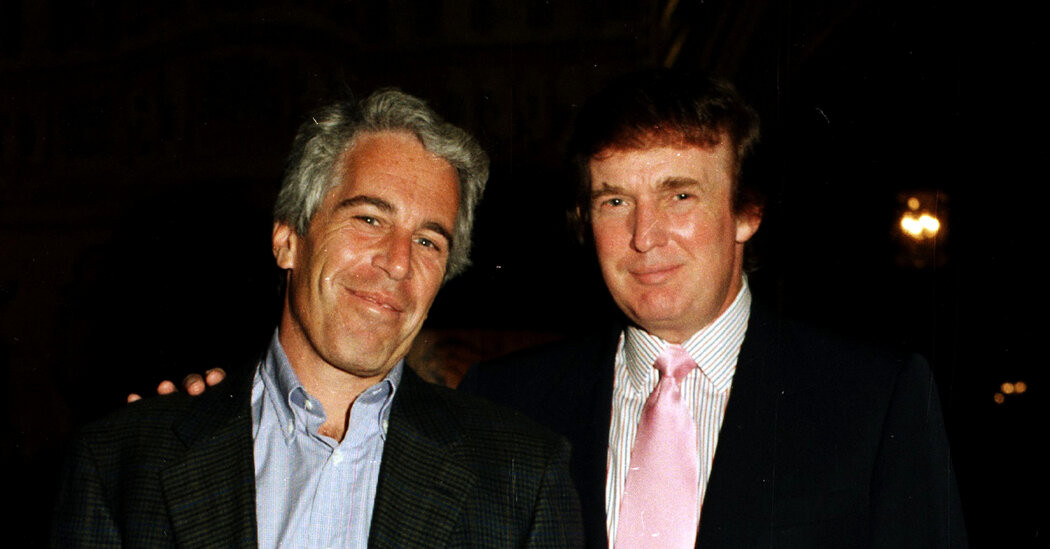

It was the summer of 1996 when Maria Farmer went to law enforcement to complain about Jeffrey Epstein.
At the time, she said, she had been sexually assaulted by Mr. Epstein and his longtime partner, Ghislaine Maxwell. Ms. Farmer, then in her mid-20s, had also learned about a troubling encounter that her younger sister — then a teenager — had endured at Mr. Epstein’s ranch in New Mexico. And she described facing threats from Mr. Epstein.
Ms. Farmer said that when she discussed her concerns with the New York Police Department, then with the F.B.I., she also urged them to take a broader look at the people in Mr. Epstein’s orbit, including Donald J. Trump, then still two decades from being elected president. She repeated that message, she said, when the F.B.I. interviewed her again about Mr. Epstein in 2006.
Her account is among the clearest indications yet of how Mr. Trump might have come to be named in the unreleased investigative files in the Epstein case, a matter that has generated another political uproar in recent weeks.
In interviews this week about what she told the authorities, Ms. Farmer said she had no evidence of criminal wrongdoing by Mr. Epstein’s associates. But she said she was alarmed by what she saw as Mr. Epstein’s pattern of pursuing girls and young women while building friendships with prominent people, including Mr. Trump and President Bill Clinton.
Investigations like the ones that targeted Mr. Epstein often explore a wide range of tips, evidence, recollections and relationships, little of which ends up being used in court records or as the basis for criminal prosecution. Mr. Epstein’s voluminous investigative file contains many records that have not been made public, but that became the focus of claims, long stoked by Mr. Trump’s allies, that authorities might have covered up the involvement of other rich and powerful men.



